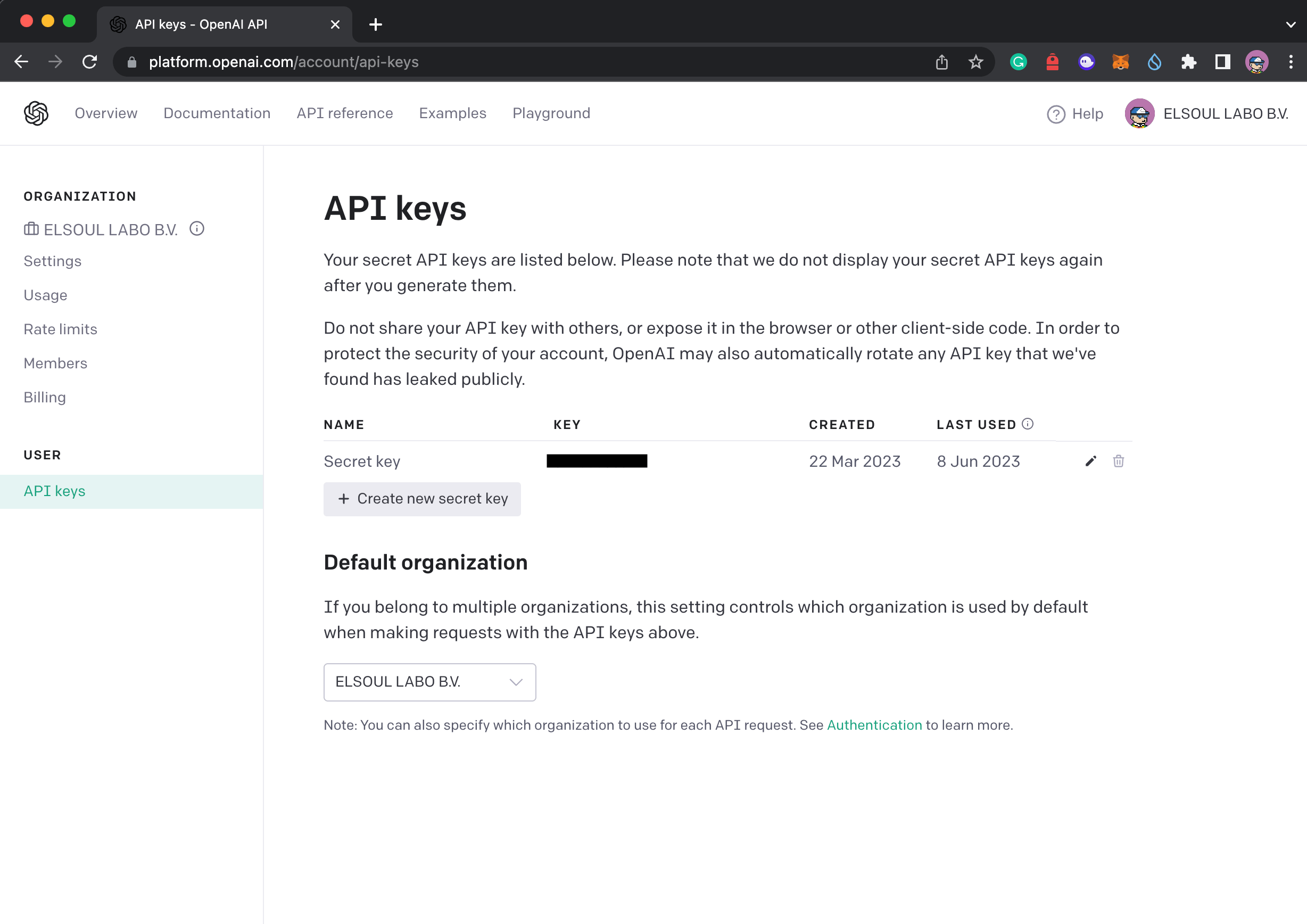
Security News
Research
Data Theft Repackaged: A Case Study in Malicious Wrapper Packages on npm
The Socket Research Team breaks down a malicious wrapper package that uses obfuscation to harvest credentials and exfiltrate sensitive data.
@skeet-framework/ai
Advanced tools

Skeet AI Plugin for Multile Chat Models.
Build generative AI apps quickly and responsibly with Model API, a simple, secure, and multiple AI models are available.
This plugin wraps the following AI models.
Fast and easy to deploy with Skeet Framework.
$ yarn add @skeet-framework/ai
with Skeet Framework CLI
$ skeet yarn add -p @skeet-framework/ai
Enable API and Permissions on GCP.
if you havent installed Skeet CLI, install it.
$ gcloud auth application-default
$ npm i -g @skeet-framework/cli
and run skeet iam ai command.
$ skeet iam ai
? What's your GCP Project ID your-project-id
? Select Regions to deploy asia-east1
✔ Successfully created ./skeet-cloud.config.json 🎉
🚸 === Copy & Paste below command to your terminal === 🚸
export GCLOUD_PROJECT=your-project-id
export REGION="us-central1"
🚸 ========= END ========= 🚸
And set environment variables following the console's output.
Note: options overwrite the environment variables
VertexAI
import { SkeetAI } from '@skeet-framework/ai'
const skeetAi = new SkeetAI({
ai: 'VetexAI',
})
const result = await skeetAi.chat('Hello')
console.log(result)
OpenAI
Note: You need finished Initial Setup - Open AI (ChatGPT) to use OpenAI API
import { SkeetAI } from '@skeet-framework/ai'
const skeetAi = new SkeetAI({
ai: 'OpenAI',
})
const result = await skeetAi.chat('Hello')
console.log(result)
Example app.ts
import { VertexAI, VertexPromptParams } from '@skeet-framework/ai'
const run = async () => {
const context =
'You are a developer familiar with the Skeet framework for building web applications.'
const examples = [
{
input:
'What is the Skeet framework and what benefits does it offer for app development?',
output:
'The Skeet framework is an open-source full-stack app development solution that aims to lower the development and operation cost of applications. It allows developers to focus more on the application logic and worry less about infrastructure. The framework can be assembled with a combination of SQL and NoSQL.',
},
]
const content = 'Tell me about the Skeet framework.'
const prompt = generatePrompt(
context,
examples,
content,
'VertexAI',
) as VertexPromptParams
const vertexAi = new SkeetAI({
ai: 'VertexAI',
})
const response = await vertexAi.prompt(prompt)
console.log('Question:\n', prompt.messages[0].content)
console.log('Answer:\n', response)
const content =
'The Skeet framework is an open-source full-stack app development solution that aims to lower the development and operation cost of applications. It allows developers to focus more on the application logic and worry less about infrastructure. The framework can be assembled with a combination of SQL and NoSQL.'
const promptTitle = await vertexAi.generateTitlePrompt(content)
const title = await vertexAi.prompt(promptTitle)
console.log('\nOriginal content:\n', content)
console.log('\nGenerated title:\n', title)
}
run()
Run
$ npx ts-node app.ts

set environment variables
$ export CHAT_GPT_ORG=org-id
$ export CHAT_GPT_KEY=your-api-key
Example app.ts
import { OpenAI, OpenAIPromptParams } from '@skeet-framework/ai'
const run = async () => {
const context = 'You are a developer familiar with the Skeet framework for building web applications.'
const examples = [
{
input:
'What is the Skeet framework and what benefits does it offer for app development?',
output:
'The Skeet framework is an open-source full-stack app development solution that aims to lower the development and operation cost of applications. It allows developers to focus more on the application logic and worry less about infrastructure. The framework can be assembled with a combination of SQL and NoSQL.',
},
]
const content = 'Tell me about the Skeet framework.'
const prompt = generatePrompt(
context,
examples,
content,
'OpenAI'
) as OpenAIPromptParams
const openAi = new SkeetAI({
ai: 'OpenAI',
})
const response = await openAi.prompt(prompt)
console.log('Question:\n', prompt.messages[0].content)
console.log('Answer:\n', response)
const content =
'The Skeet framework is an open-source full-stack app development solution that aims to lower the development and operation cost of applications. It allows developers to focus more on the application logic and worry less about infrastructure. The framework can be assembled with a combination of SQL and NoSQL.'
const promptTitle = await openAi.generateTitlePrompt(content)
const title = await openAi.prompt(promptTitle)
console.log('\nOriginal content:\n', content)
console.log('\nGenerated title:\n', title)
Run
$ npx ts-node app.ts
Fine-tuning is a technique that allows you to customize the model to your specific use case by providing examples of the desired behavior.
Create a JSONL file with the following format.
./fine-tuning.jsonl
{"messages":[{"role":"system","content":"You are a senior engineer specialized in assisting developers."},{"role":"user","content":"Give an example of what the Skeet framework could be used for?"},{"role":"assistant","content":"The Skeet framework can be used for a variety of web applications, such as building a Chatbot"}]}
{"messages":[{"role":"system","content":"You are a senior engineer specialized in assisting developers."},{"role":"user","content":"I got a credentials error while trying to use the Skeet framework. What should I do?"},{"role":"assistant","content":"The Skeet framework uses Google Cloud. You might need to login using `gcloud auth application-default login` to use the framework."}]}
Example tuning.ts
import { OpenAI } from '@skeet-framework/ai'
const openAi = new SkeetAI({
ai: 'OpenAI',
})
// Upload JSONL file
const filePath = './fine-tuning.jsonl'
const uploadFile = await openAi.uploadFile(filePath)
// Create Fine-tuning Job
const model = 'gpt-3.5-turbo-0613'
const job = await openAi.createFineTuningJob(uploadFile.id, model)
// Check Fine-tuning Job Status
const jobStatus = await openAi.showFineTuningJob(job.id)
console.log(jobStatus)
You can use the fine-tuned model after the job is completed.
GraphQL, CloudSQL, Cloud Functions, TypeScript, Jest Test, Google Cloud Load Balancer, Cloud Armor
TypeScript Serverless Framework 'Skeet'.
The Skeet project was launched with the goal of reducing software development, operation, and maintenance costs.
Build Serverless Apps faster. Powered by TAI, Cloud Functions, Typesaurus, Jest, Prettier, and Google Cloud.
$ npm i -g @skeet-framework/cli
$ skeet create web-app
Bug reports and pull requests are welcome on GitHub at https://github.com/elsoul/skeet This project is intended to be a safe, welcoming space for collaboration, and contributors are expected to adhere to the Contributor Covenant code of conduct.
The package is available as open source under the terms of the Apache-2.0 License.
Everyone interacting in the SKEET project’s codebases, issue trackers, chat rooms and mailing lists is expected to follow the code of conduct.
FAQs
Skeet Framework Plugin - AI
The npm package @skeet-framework/ai receives a total of 11 weekly downloads. As such, @skeet-framework/ai popularity was classified as not popular.
We found that @skeet-framework/ai demonstrated a healthy version release cadence and project activity because the last version was released less than a year ago. It has 3 open source maintainers collaborating on the project.
Did you know?

Socket for GitHub automatically highlights issues in each pull request and monitors the health of all your open source dependencies. Discover the contents of your packages and block harmful activity before you install or update your dependencies.

Security News
Research
The Socket Research Team breaks down a malicious wrapper package that uses obfuscation to harvest credentials and exfiltrate sensitive data.

Research
Security News
Attackers used a malicious npm package typosquatting a popular ESLint plugin to steal sensitive data, execute commands, and exploit developer systems.

Security News
The Ultralytics' PyPI Package was compromised four times in one weekend through GitHub Actions cache poisoning and failure to rotate previously compromised API tokens.